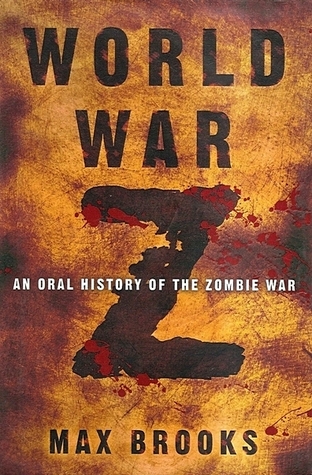I love me some post-apocalyptic sci-fi, so I was excited to see this book as an audiobook option at the library, especially when I learned that it was not just a single reader, but a full cast of voice actors. Unfortunately, I had a hard time getting into this. Part of that may be that the version I listened to was abridged, but it may also have something to do with how the story is told.
The idea behind this book is that it is a collection of stories told by survivors of a zombie apocalypse. On its face, this is a pretty cool idea. You get to see the events from many different perspectives, each illuminating how events unfolded in their part of the world. The downside of this is that you already know the ending. People survived and are writing up government reports on the events of the war, so that immediately takes away some of the tension from the stories. Also, there is no main character to follow and root for. So the impetus to keep reading ends up being just “how did they all survive?” and that only goes so far.
Another side effect of this storytelling format is that the stories are supposedly in people’s own words, but the way people talk is quite different from the way a novel is written. I found that a lot of times the stories would feel unnatural because what was supposedly an eyewitness account would end up full of detailed description more suited to novel narration. This might be a case where the audiobook format worked against the story: hearing someone actually speak the words out loud might have sounded more jarring than reading them on the page.
The abridgment was also a problem. It was clear that the story was missing pieces, and I did not realize that I was only minutes away from the ending when it finally came. I’m always puzzled by abridgment. If there were pieces of the story that could be cut, presumably that would happen before publication, and whatever was published is there for a reason.
I should say that despite all these complaints, I did enjoy some parts of the book. Odd as it sounds, I found the higher-level stories that talked about the geopolitics of the war or the logistics of re-starting industry in the wake of the apocalypse more interesting than some of the “small-scale” stories of single characters trying to survive. Brooks does a good job of depicting a truly global apocalypse, something that is often overlooked in the genre in favor of following a small group of survivors. This is a case where the format of World War Z works in its favor. Being able to view the apocalypse from South Africa, and China, and Japan, and Cuba, and the US, etc. was refreshing.
Another thing that I liked was that spread of the disease responsible for the zombies was depicted realistically. It’s not as if one day everyone wakes up and there are zombies. The cases of infection gradually grow more and more common, and by the time it is recognized for the true threat that it is, it is already too widespread to stop it. This struck me as pretty realistic (ignoring the part about the zombies of course).
So, bottom line: it didn’t really work for me, and I’m surprised it has become so popular. The format worked against it in places, and I’m sure the abridgment didn’t help, but there were certain stories that were still pretty interesting, especially when they showed the big picture which is so often lost in post-apocalyptic fiction.


Leave a Reply